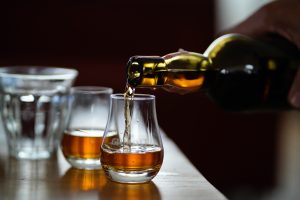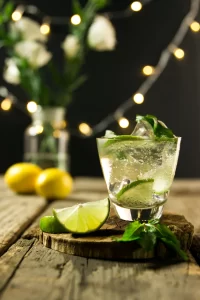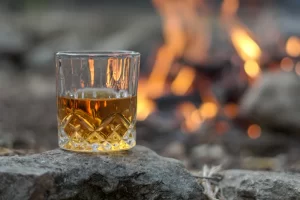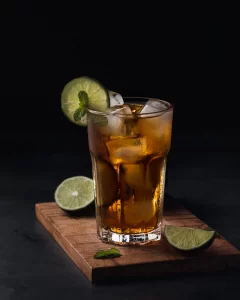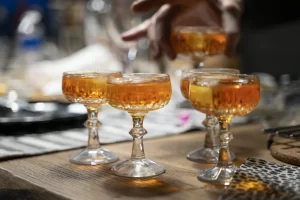Massachusetts Liquor Laws And Regulations
Like every state, Massachusetts has strict rules, laws, and regulations surrounding the sale and consumption of alcoholic beverages. If you dream of opening a distillery in Massachusetts, it’s important to familiarize yourself with these laws.
Luckily, this guide covers all the information that distillers need to know, such as age restrictions and licensing requirements.
Massachusetts Liquor Laws And Regulations
State Fees
A liquor license tends to cost between $200 and $500 in Massachusetts. However, this fee will differ based on location. This liquor license will be essential for selling alcohol, so this fee is a necessary payment. You may also have to pay a processing fee when applying for a liquor license.
Licensing Requirements
To sell alcohol in this state, you must possess a legitimate license. Specifically, an Alcoholic Beverages License (ABCC) is required. You can easily apply for this license online or in person.
An application will need to be approved by both the ABCC and the local licensing authorities (LLA). As a result, the exact requirements for this application process will vary depending on what area of Massachusetts you live in.
However, many of the stipulations will remain the same no matter the location. For instance, most authorities will charge $200 as a processing fee. You will also have to fill in a retail form, which will ask you lots of questions about the business.
The ABCC will also request Criminal Offender Record Information (CORI) to determine whether or not applications are suitable for a liquor license in Massachusetts. As a result, you may need to fill on a CORI form so that the organization can access details about your criminal record.
To obtain a liquor license, individuals must be over the age of twenty-one. In addition, alcohol can only be sold in the location used when applying for the license.
Distillery Restrictions
Massachusetts has banned happy hour since December 1984. This ban means that restaurants and bars are unable to sell alcohol at discounted prices. Promoted by Mothers Against Drunk Driving, this ban was designed to prevent drunk driving.
Though there have been numerous attempts to remove this ban, it has nonetheless persisted. As a result, providers of alcoholic beverages must bear in mind that they cannot sell their products at chapter rates.
Distiller Licenses
If you intend to open a distillery, you can apply for a Farmer Distillery license in Massachusetts through the ABCC. There are several documents that you will need to submit when applying for a license, including:
- CORI form
- Personal Information Form
- Documents of occupancy
- Proof of citizenship
- Surety bond
- TTB license (Alcohol & Tobacco Tax and Trade Bureau)
- FDA (Food and Drug Administration) registration
There are costs associated with the submission of a distiller license application. However, the fee will differ depending on how many units are produced by the distiller.
For instance, distillers that produce between 5,000 and 20,000 gallons will have to pay $44 per license. Meanwhile, distilleries that manufacture in the range of 100,000 to 1000,000 gallons must pay a fee of $110.
It usually takes between 4 and 6 weeks to process an application for a distiller’s license. Therefore, you must obtain this in advance of the opening date for the distillery.
Age Restrictions

In Massachusetts, the drinking age is twenty-one. This has been the case since 1984 when a bill was signed due to the National Minimum Drinking Age Act.
However, people under the age of twenty-one can consume alcohol in private settings if it has been provided by a parent or grandparent. It is illegal to sell alcohol to someone under the age of twenty-one.
To work in a bar or another establishment that sells alcohol, employees must be over the age of eighteen.
If they are under the age of twenty-one, these bar staff members must be supervised by an older member of staff. People between the ages of eighteen and twenty can handle, serve, and transport alcoholic beverages in a bar or restaurant.
It is also illegal to use a fake ID to purchase alcohol in Massachusetts. Luckily, establishments are protected when accidentally serving a minor who has provided identification.
This identification can be in the form of a fraudulent passport, driver’s license, or identification card.
BAC Restrictions
BAC refers to blood alcohol concentration, meaning the concentration of alcohol that is in a person’s blood. In Massachusetts, it is illegal to drive while having a BAC of more than 0.08. If a driver exceeds this level, they will be charged with driving under the influence (DUI). To determine your BAC level, drivers may need to participate in a breathalyzer or blood test.
There are strict penalties for driving under the influence in Massachusetts. Namely, people who have failed these tests will face fines, jail time, and a driver’s license suspension. Penalties are more severe for people who have had numerous offenses.
It is essential for liquor sellers to bear this in mind, as they play an important role in attempting to prevent drunk driving. Employees must learn to identify intoxicated patrons.
Opening Restrictions
The opening restrictions for liquor providers will differ depending on the type of establishment. Restaurants and bars can sell alcoholic beverages between the hours of 8 am and 2 am. These restrictions are only in place between Monday and Saturday. On a Sunday, alcohol cannot be sold until noon and must end at 2 am.
These opening restrictions are different for grocery stores that sell alcoholic beverages. These restrictions are tighter, as they can only sell liquor between 8 am to 11 pm. Establishments could be fined for selling alcohol outside of these specific hours.
Frequently Asked Questions
Is It Hard To Get A Liquor License In Massachusetts?
As with many states, it can be difficult to obtain a liquor license in Massachusetts. The application process can be long and grueling, as you will have to fill in a large number of forms. It can take weeks or even months to acquire a liquor license.
Do You Need A Liquor License In Massachusetts?
Yes, you will need to get a license from the Alcoholic Beverages Control Commission if you wish to sell liquor in Massachusetts. People who break this law may be criminally prosecuted.
Final Thoughts
If you want to set up a distillery, restaurant, or bar in Massachusetts, you will need to follow the rules and regulations that have been established in this state. This includes the licensing requirements and age restrictions.
Though it can be difficult to stay on top of all of these regulations, hopefully, this guide has helped you to better understand the state of liquor laws in Massachusetts.
